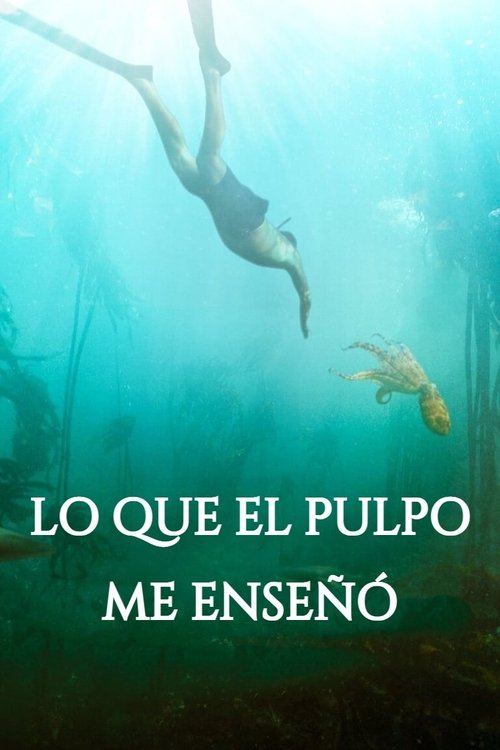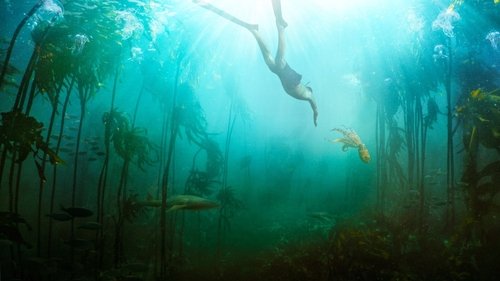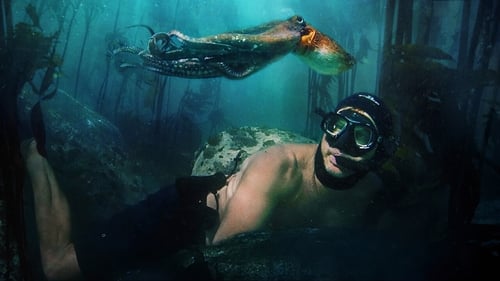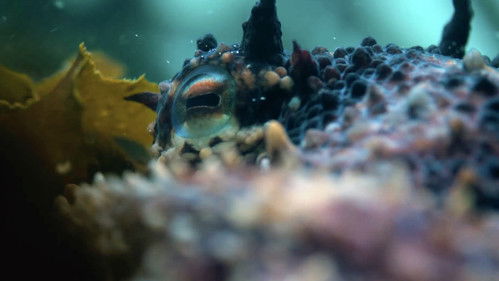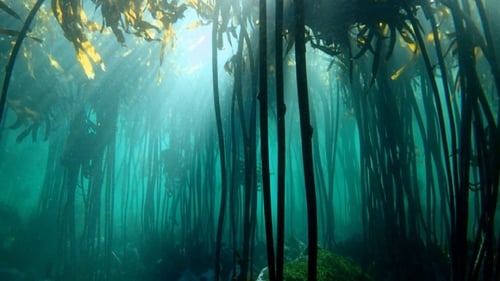
Danybur
7
|
may. 02, 2021
(Español / English)
#
Hermosa cinematografía y una historia de vida que está de más
Sumario
Un documental maravillosamente fotografiado y montado sobre las sorprendentes costumbres de un pulpo hembra y su fascinante hábitat, que cuenta con el aditamento de las motivaciones del documentalista que lo protagoniza (no es su director) y las sentenciosas “enseñanzas” que extrae del “vínculo” que entabla con el molusco. Una suerte de historia de vida que funciona como una excusa narrativa totalmente innecesaria.
Ganadora del Oscar 2020 a mejor largometraje documental.
Reseña
Un documentalista sigue las costumbres de un pulpo durante casi un año en un bosque de algas en las frías aguas de la costa sudafricana, estableciendo una suerte de vínculo con el molusco.
Ante todo, una aclaración personal: de los documentales sobre el mundo natural (y diría que de los documentales en general), siempre preferiré aquéllos en que el o la documentalista no aparece en cámara y todo el material está centrado en los animales, vegetales y/o ecosistemas que se describen. En el otro tipo de documentales, el/la documentalista se erige en uno de los personajes principales de la película con elementos de su making of.
En Mi maestro el pulpo aparece esta segunda vertiente, donde el documentalista y ambientalista Craig Foster (también productor) nos relata que aborda el comportamiento de un pulpo hembra (por lo que el título debería ser Mi maestra la pulpa) como una suerte de terapia para salir de una depresión que lo aquejaba y las enseñanzas que va extrayendo (y los rasgos obsesivos que va mostrando) a partir de relacionarse y “comunicarse” con el animal mientras sigue de cerca casi todo su ciclo vital.
¿Interesa esto? ¿Agrega algo esta historia de vida? Yo diría que no. Aparece como una excusa o articulador narrativo totalmente innecesario. Sólo rescataría sus reflexiones acerca de las decisiones que va tomando sobre la filmación. Sin embargo, los directores de la película son Pippa Ehrlich y James Reed, por lo que muy probablemente no todas las escenas fueron filmadas en las condiciones en que se sumerge Foster.
Y digo que este marco-excusa narrativo es innecesario porque la fortaleza de esta película está en sus maravillosas imágenes del pulpo y sus sorprendentes recursos adaptativos a su fascinante hábitat marino, haciendo gala de variados recursos cinematográficos (donde la cámara muchas veces se vuelve subjetiva) y sin escatimar dramáticas escenas de peligro para el animal. Por supuesto que aquí también hay un relato a partir de un montaje que arma escenas, de las que me permito dudar de su cronología.
Beautiful cinematography and a life story that hurts
Summary
A wonderfully photographed and mounted documentary about the surprising habits of a female octopus and its fascinating habitat, which is supplemented by the motivations of the documentary filmmaker and the judgmental "lessons" that he draws from the "bond" he establishes with the mollusk. A kind of life story that works as a totally unnecessary narrative excuse.
Winner of the Oscar 2020 for best documentary feature film.
Review
A documentary filmmaker follows the habits of an octopus for almost a year in a kelp forest in the cold waters of the South African coast, establishing a kind of link with the mollusk.
First of all, a personal clarification: of documentaries about the natural world (and I would say that of documentaries in general), I will always prefer those in which the documentary maker does not appear on camera and all the material is focused on animals, plants and animals. / or ecosystems that are described. In the other type of documentaries, the documentary maker becomes one of the main characters of the film with elements of the making of it.
In My Octopus Teacher, this second aspect appears where the documentary filmmaker and environmentalist Craig Foster (also a producer) tells us that he addresses the behavior of a female octopus as a kind of therapy for to get out of a depression that afflicted him and the lessons that he is extracting (and the obsessive traits that he is showing) from relating and "communicating" with the animal while closely following almost its entire life cycle.
Is this interesting? Does this life story add anything? I would say not. It appears as a totally unnecessary excuse or narrative articulator. I would only rescue his reflections on the decisions he is making about filming. However, the directors of the film are Pippa Ehrlich and James Reed, so most likely not all scenes were shot in the conditions that Foster is immersed in.
And I say that this narrative framework or excuse is unnecessary because the strength of this film is in its wonderful images of the octopus and its surprising adaptive resources to its fascinating marine habitat, displaying varied cinematographic resources (where the camera often becomes subjective) and without sparing dramatic scenes of danger for the animal. Of course, here there is also a story and a montage that sets up scenes and I allow myself to doubt its chronology.
